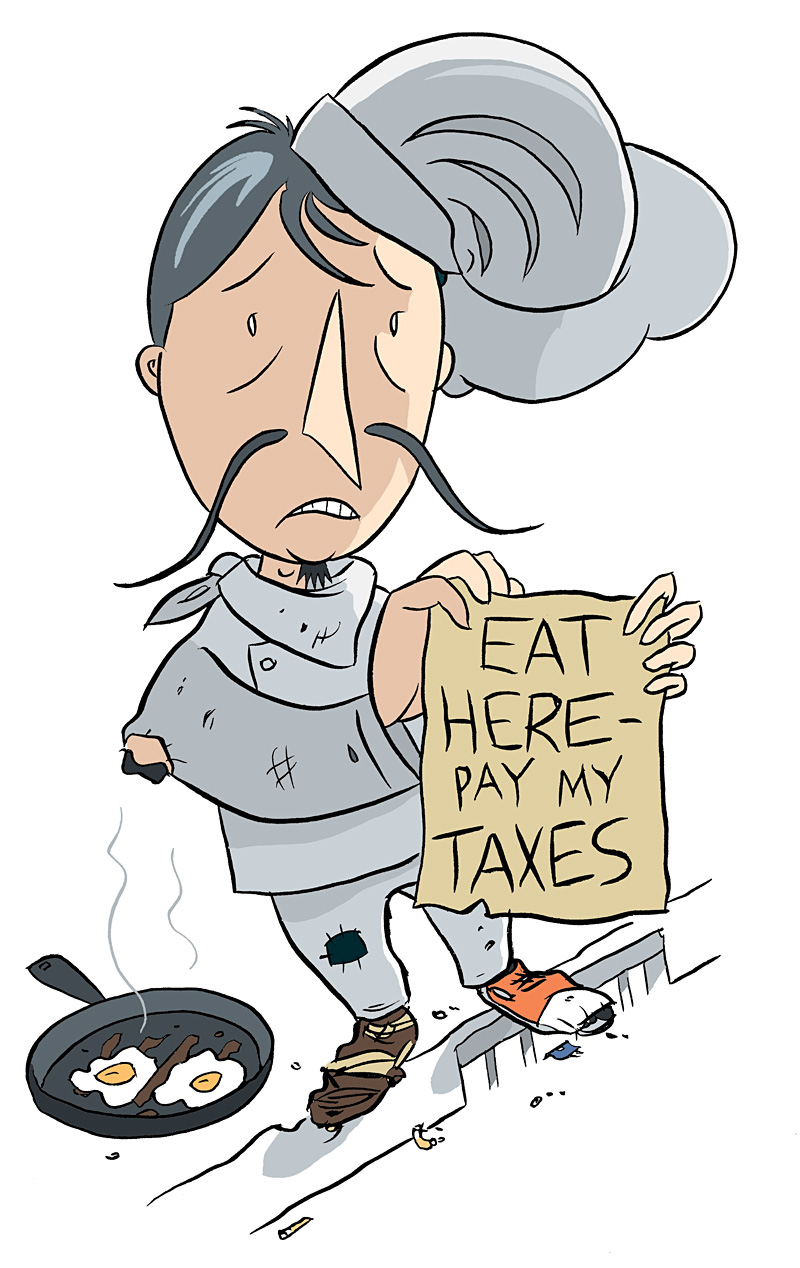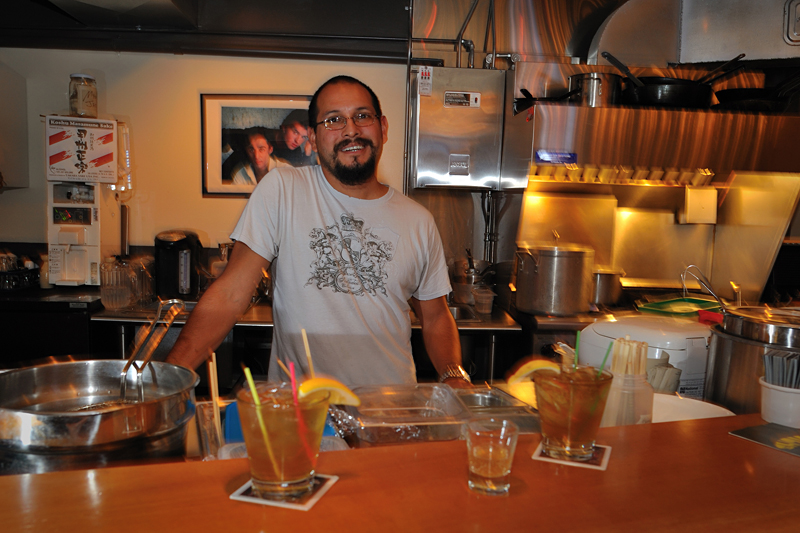Last month Alan Greenspan declared the recession over. And this month billionaire investor Warren Buffett said more or less the same. Clearly, neither spends much time dining in Seattle.
“I really don’t see anything that’s positive,” says Steve Katsandres, owner of Bad Albert’s, a restaurant and blues joint in Ballard. “Last year was shitty, and this year doesn’t look much better.”
Bad Albert’s is one of dozens of Seattle-area restaurants that have fallen behind on their taxes. Katsandres currently owes the state $56,506. Since 2010 began, the state Department of Revenue has taken 161 King County restaurants to court to recover unpaid taxes totaling more than $1.4 million. That’s an increase of 25 percent over the number of restaurants sued during the same period last year.
DOR data show that business in King County is suffering more than elsewhere in Washington. Statewide, the number of tax warrants filed on all businesses, including restaurants, is actually down this year compared to last. Only here in King County does the recession’s grip seem as firm as ever. The total number of warrants filed here is up about 16 percent—with restaurants doing worse than business as a whole (a 25 percent increase, as noted above).
A scan through the warrants (published each week in the Puget Sound Business Journal and on the King County Superior Court Web site) shows that a number of franchise outlets, like the Capitol Hill IHOP and a downtown Quizno’s, are behind on their taxes. But well-known, locally grown favorites are also among the debtors who have been sued by the state this year, including Skillet Street Food, $22,077; Online Coffee Company, $25,463; Taqueria Jalisco, $33,344; Troiani, $42,861; Portage Bay Cafe, South Lake Union, $56,545; and Bluwater Bistro (multiple locations), $144,170.
One of the biggest tax bills is held by the Triangle Lounge in Fremont (which closed last June). Former owner Tom Hurley owes the state $255,207.
DOR spokesperson Mike Gowrylow explains that businesses are supposed to write checks to the state to cover various business taxes as well as the sales tax they collect at the till. When times get tough, he says, employers start using that money to cover other expenses or pay their employees. Technically, using the sales tax for your business is a felony (as in the case of Grey Lundberg, above), but the state doesn’t usually seek criminal charges, Gowrylow says. “Practically, we know that what happens is businesses get behind.”
When a business owes the state money, the DOR contacts the owner by phone and mail to set up a payment plan. The department also starts assessing steep late fees—up to 25 percent of the amount due, depending on how behind you are—and charging 3 percent interest. If the business doesn’t respond or stick to the plan, the DOR files what’s called a Tax Warrant in Superior Court. The warrant allows the state to tack another 10 percent penalty onto the amount you owe and to start taking the money directly out of your bank account or seizing other assets.
Gowrylow says the DOR doesn’t always take advantage of the more aggressive measures allowed by the warrants. Sometimes just filing it is enough to spur a business to pay off their tab. He adds that he can’t disclose whether that’s being done in the case of any specific restaurant. Katsandres says he’s entered into a payment agreement; though he says that the DOR has been flexible, the fees and interest make the bill extremely difficult to pay off.
Gowrylow adds that in exceptional cases, the department can revoke a restaurant’s license. And since the beginning of 2008, the department has done so with 170 of them. But in general, he says, especially given the tough economic times, the DOR wants to keep doors open. “We’re trying to be as accommodating as we can while protecting the public interest.”







